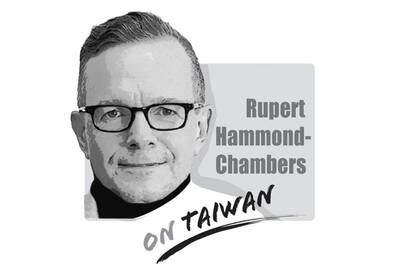How would you feel if you had been called a freak even before you were born? How would you feel if someone accused you of breaking the law before you had even conveyed a single thought?
This seems to be the case in the recent uproar over the VCDs produced by Lin Yi-fang (
Long before its content was made public, a number of pan-blue politicians such as Chinese Nationalist Party (KMT) Chairman Ma Ying-jeou (
The problem is that none of them have actually viewed the VCDs.
So why all the exasperation, fuss and fantasies about the VCDs? All we can say -- once again -- is that this reflects absurdity, ignorance and lack of democratic capacity in these critics.
Taoyuan County police last week seized film footage in a Taipei studio that purportedly contains subject matter insinuating that Chu -- who is seeking re-election -- had had various extramarital affairs.
The Publication Law (
VCDs, as a type of publication, are protected by the freedom of speech and publication enshrined in Article 11 of the Constitution.
Freedom of speech -- as Vice President Annette Lu (
Whether the VCDs are legal or not can only be determined after they have been released.
Yet the Taoyuan police applied censorship by withholding the discs without proper reason before they were released, shockingly reminding many of us of the White Terror in the martial law era under the KMT.
It is quite ironic that a disgraceful incident such as raiding a studio would happen under the DPP administration, which prides itself on its role as a protector of freedom of expression.
In fact, some members of the DPP administration are echoing the pan-blues' arguments that releasing the VCDs is in violation of the Election and Recall Law (
DPP officials need to stop their wishful thinking that their tolerance of the pan-blues will secure more cooperation at the Legislative Yuan.
Supping with the enemy is going to gain the DPP administration neither respect nor support from the pan-blues. It will only help the pan-blues fortify their scheme to paralyze the DPP administration, and leave the government -- sadly and stupidly -- to become a witless pawn in oppressing freedom of expression all over again.
Having lived through former British prime minister Boris Johnson’s tumultuous and scandal-ridden administration, the last place I had expected to come face-to-face with “Mr Brexit” was in a hotel ballroom in Taipei. Should I have been so surprised? Over the past few years, Taiwan has unfortunately become the destination of choice for washed-up Western politicians to turn up long after their political careers have ended, making grandiose speeches in exchange for extraordinarily large paychecks far exceeding the annual salary of all but the wealthiest of Taiwan’s business tycoons. Taiwan’s pursuit of bygone politicians with little to no influence in their home

In 2025, it is easy to believe that Taiwan has always played a central role in various assessments of global national interests. But that is a mistaken belief. Taiwan’s position in the world and the international support it presently enjoys are relatively new and remain highly vulnerable to challenges from China. In the early 2000s, the George W. Bush Administration had plans to elevate bilateral relations and to boost Taiwan’s defense. It designated Taiwan as a non-NATO ally, and in 2001 made available to Taiwan a significant package of arms to enhance the island’s defenses including the submarines it long sought.
US lobbyist Christian Whiton has published an update to his article, “How Taiwan Lost Trump,” discussed on the editorial page on Sunday. His new article, titled “What Taiwan Should Do” refers to the three articles published in the Taipei Times, saying that none had offered a solution to the problems he identified. That is fair. The articles pushed back on points Whiton made that were felt partisan, misdirected or uninformed; in this response, he offers solutions of his own. While many are on point and he would find no disagreement here, the nuances of the political and historical complexities in
Taiwan faces an image challenge even among its allies, as it must constantly counter falsehoods and misrepresentations spread by its more powerful neighbor, the People’s Republic of China (PRC). While Taiwan refrains from disparaging its troublesome neighbor to other countries, the PRC is working not only to forge a narrative about itself, its intentions and value to the international community, but is also spreading lies about Taiwan. Governments, parliamentary groups and civil societies worldwide are caught in this narrative tug-of-war, each responding in their own way. National governments have the power to push back against what they know to be